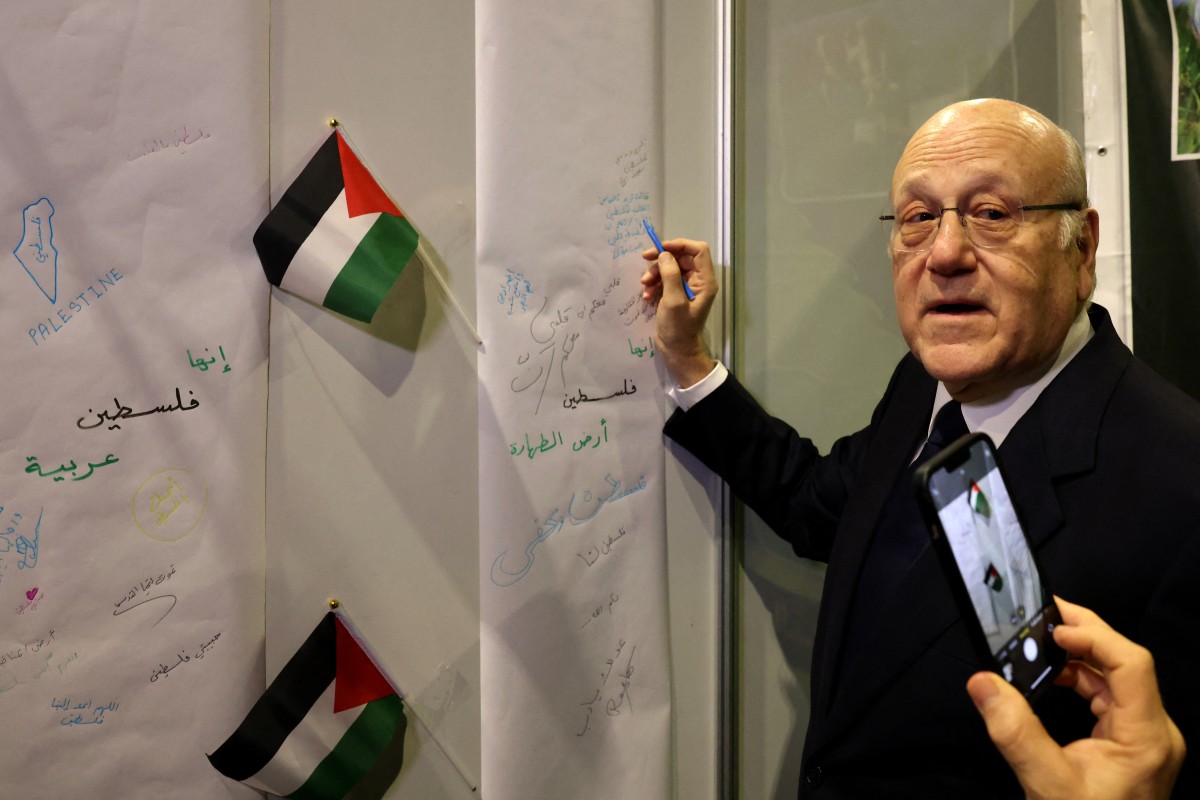Beirut, Lebanon – Lebanon is ready to implement a UN resolution that would help end Hizbollah’s cross-border attacks on Israel if Israel also complies and withdraws from disputed territory, Lebanon’s prime minister said on Friday.
The frontier between Lebanon and Israel has seen escalating exchanges of fire, mainly between the Israeli army and the Iran-backed Hiizbollah group, since the Israel-Hamas war began on October 7, raising fears of a broader conflagration.
UN Security Council Resolution 1701, which ended a 2006 war between Israel and Hizbollah, called for the removal of armed personnel south of Lebanon’s Litani River, except for UN peacekeepers and the Lebanese army and state security forces.
The solution to the current cross-border hostilities “is the implementation of international resolutions”, including Resolution 1701, Prime Minister Najib Mikati said in a statement.
“We are totally ready to commit to their implementation, on condition the Israeli side does the same, and withdraws — according to the international laws and resolutions — from occupied territory,” he added.
Mikati’s office said the premier was referring territory claimed by Lebanon that remains occupied following Israel’s withdrawal from the country’s south in 2000: the disputed Shebaa Farms, the Kfarshuba hills and the Lebanese side of the village of Ghajar.
Despite holding sway over swathes of the country’s south, Hizbollah has not had a visible military presence on Lebanon’s southern border since the end of the 2006 war.
A diplomatic source, requesting anonymity, told AFP that the proposals to avert another all-out conflict include settling the disputed land border between Israel and Lebanon and encouraging Hizbollah withdraw its fighters from near the frontier.
On Monday, French Foreign Minister Catherine Colonna met with senior officials in Beirut, a day after visiting Israel and the occupied West Bank, as part of efforts to de-escalate border tensions, while Pentagon chief Lloyd Austin urged Hizbollah to avoid provoking a “wider conflict”.
Since hostilities began in October, more than 140 people have been killed on the Lebanese side, most of them Hizbollah fighters but also more than a dozen civilians, three of them journalists, according to an AFP tally.
On the Israeli side, four civilians and seven soldiers have been killed, according to officials.
Israeli Foreign Minister Eli Cohen on Sunday said ensuring the security of Israelis near the border meant pushing Hizbollah “north of the Litani River”, which is around 30 kilometers (20 miles) north of the frontier.
“There are two ways to do that: either by diplomacy or by force,” Cohen said.







